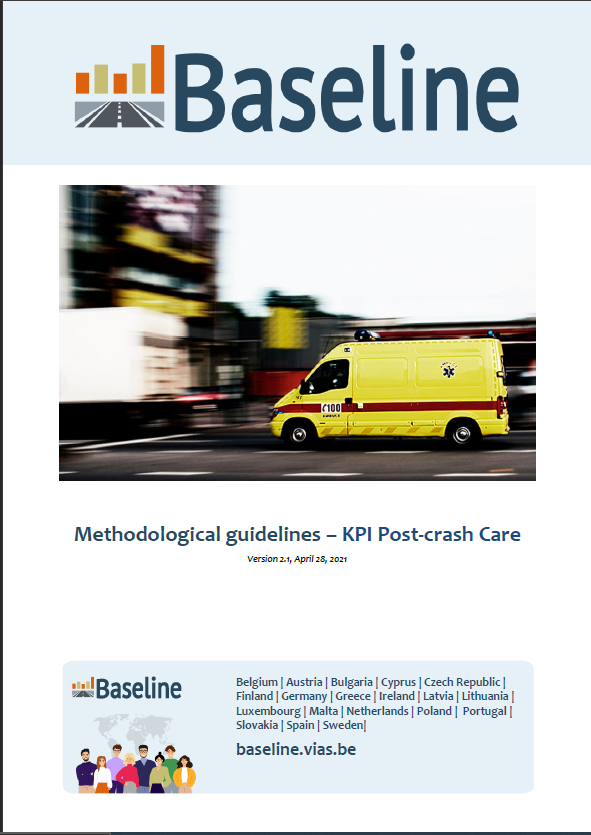BASELINE Project: Methodological guidelines – KPI Post-crash Care

The Communication of the European Commission “Europe on the Move – Sustainable Mobility for Europe: safe, connected and clean” of the 13th May 2018 confirmed the EU's long-term goal of moving close to zero fatalities in road transport by 2050 and added that the same should be achieved for serious injuries. It also proposed new interim targets of reducing the number of road deaths by 50% between 2020 and 2030 as well as reducing the number of serious injuries by 50% in the same period. To measure progress, the most basic – and important – indicators are of course the result indicators on deaths and serious injuries.
In order to gain a much clearer understanding of the different issues that influence overall safety performance, the Commission has elaborated, in cooperation with Member State experts, a first set of key performance indicators (KPIs). The KPIs relate to the main road safety challenges to be tackled, namely: (1) infrastructure safety, (2) vehicle safety, (3) safe road use including speed, alcohol, distraction and the use of protective equipment, and (4) emergency response. The aim of the KPIs is connected to EC target outcomes.
The aim of the BASELINE project, funded partially by the European Commission, is to assist participating Member States’ authorities in the collection and harmonized reporting of these KPIs and to contribute to building the capacity of Member States which have not yet collected and calculated the relevant data for the KPIs. The outcomes of this project will be used to set future European targets and goals based on the KPIs.
The purpose of this document is to further describe the minimal methodological requirements to qualify for the BASELINE KPI for post-crash care, defined as: the time elapsed in minutes and seconds between the emergency call following a road crash resulting in personal injury and the arrival at the scene of the road crash of the emergency services (to the value of the 95th percentile).